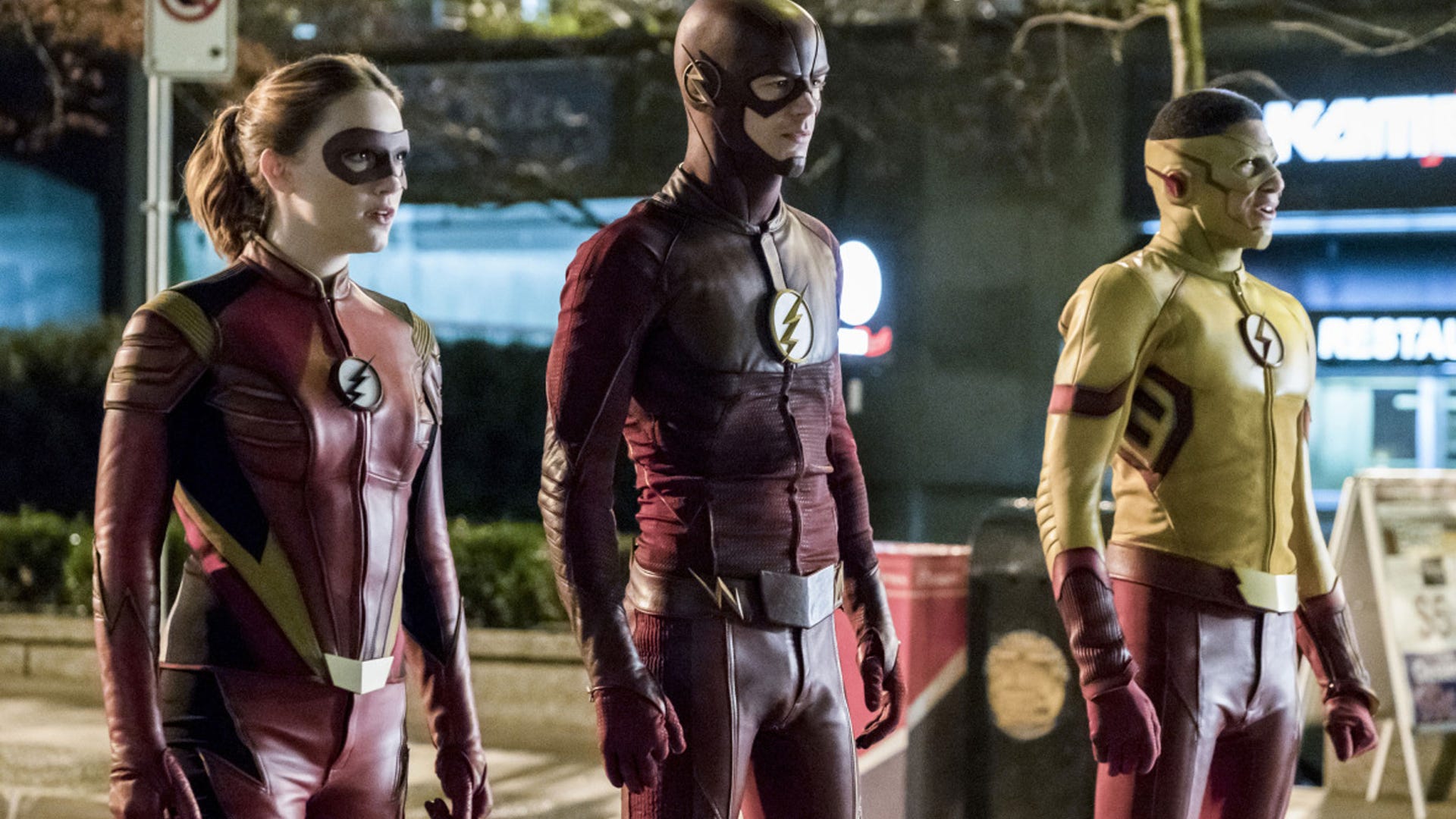Join or Sign In
Sign in to customize your TV listings
By joining TV Guide, you agree to our Terms of Use and acknowledge the data practices in our Privacy Policy.
The Flash: Who Knew a Gorilla Attack Could Be So Boring?
The conclusion to The Flash's two-parter was a real let-down
The CW promoted The Flash's "Attack On" duology as a big two-night event. It was a rare actual two-parter within the narrative structure of The Flash (and the Arrowverse as a whole, really, which doesn't really do much in the way of completely connected two-parters). It featured one of Flash's most prominent and powerful villains as its antagonist; it promised a special effects-driven spectacle; and it was a major event within the timeline of Irispoint that needed to be stopped or altered.
So why did it end up being so overwhelmingly boring?
Last week's installment could almost be excused as, first parts are a little notorious for needing to provide a lot of setup so the concluding part can really fire on all cylinders. However, even as Part 1s go, "Attack on Gorilla City" really suffered. It featured a lot of Team Flash hanging out in a very nondescript dungeon, followed by a dull fight between Barry (Grant Gustin) and Solovar (Keith David) that was little more than Barry running around in a big circle and then Solovar jumping really high to perform a ground pound.
The Flash: Winners and losers in the "Attack on Gorilla City"
But the promise of "Attack of Central City" hung in the air. Grodd (David Sobolov) had himself an entire gorilla army ready to tear Earth-1 Central City apart. That closing scene from "Attack on Gorilla City" really had me pumped for a big showdown between speedsters, vibers and gorillas.

Instead of that, we got another nuclear missile threat (I say "another" because the Arrowverse has come to rely excessively on nuclear weapons since the fourth season of Arrow; it's basically allSupergirl does now) and Grodd's huge army of gorillas turned out to be about seven or 10 gorillas that didn't even do anything because Wally (Keiynan Lonsdale) and Jesse (Violett Beane) kept them busy until Solovar came back to fight Grodd. And then they -- meaning the gorillas, Barry, Wally and Jesse -- just stood there while Solovar and Grodd acted out what I can only assume was a promotion for a DLC pack for DC superhero beat-'em-up video game Injustice.
In the words of Liz Lemon: "What the whuck?"
Like I said last week regarding the Barry/Solovar fight, a lot of this has to be chalked up to TV budgeting. Rendering a lot of CGI gorillas is expensive, let alone having to animated all of them in some sort of big clash between superheroes. And I have to admire The Flash's writers and producers for wanting to do this kind of a story on the show. It's big, it's zany, and it hearkens back to the fun of Silver Age comic books before they became sometimes far too dour.
But without the budget to really execute that sort of vision, you end up with either the visual dullness of "Attack on Gorilla City" or the... well, odd dourness of "Attack on Central City" that filled the majority of the hour. The conversations between Barry and Iris (Candice Patton) and Harry (Tom Cavanagh) about Barry potentially killing Grodd to keep him from doing all this again was a fine one to have, and even somewhat motivated by Barry's frustrations by whether or not they're doing enough to save Iris from Savitar. However, given that Flash is not Arrow, the idea that Barry would actually kill Grodd is, dramatically, a non-starter. Whenever the show dips into this pond, as it did a good bit last season, it screeches to a halt because it simply doesn't fit.
When will a true four-way Arrowverse crossover happen?
Along similar performance lines, we were granted lots of characters controlled by Grodd, and the actors getting to play that for all its worth. While I really liked Cavanagh's Grodd-controlled Harry last week, I think I enjoyed the timbre that Jesse L. Martin brought to the whole performance. It was distinctly not Joe in voice and facial expression, and it really worked for me. (Carlos Valdes was a very distant third, and Paul Jarrett's General McNally was not even in the running.)
If there was one big bright spot to the whole affair, and "Attack on Central City" in particular, it was Barry's marriage proposal to Iris. The story around the ring was really good, but just the whole proposal itself felt very meaningful. Sure, you could argue it happens very quickly, given that they've only dated and lived together for a short period of time, but they've also known each other for most of their lives. And, also, Iris could die in like two months. Of course, if she and Barry are engaged and the show still kills her, I'll probably just burn the whole thing to the ground. So, you know, don't kill Iris, OK, show? I'd like a wedding and a happy couple in a superhero show.
The Flash airs Tuesdays at 8/7c on The CW.
(Full disclosure: TVGuide.com is owned by CBS, one of The CW's parent companies.)